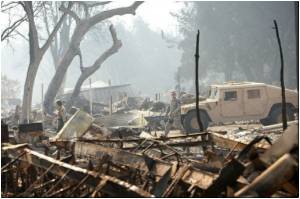Continuous stream of space-based climate, weather and other Earth observation data from NASA and its partners is drawn and shared with governments and researchers.

Scientists draw on a continuous stream of space-based climate, weather and other Earth observation data from NASA and its partners, sharing timely information with governments and researchers in Myanmar, Cambodia, Laos, Thailand and Vietnam. They have addressed issues such as water management, land use planning, disaster risk reduction and management of natural resources.
The SERVIR program helps local governments and development stakeholders incorporate Earth observations and geospatial technologies into natural disaster response, improve food security, safeguard human health, and manage water and natural resources. Hubs in each region focus on issues and needs most critical to the local populations.
Beth Paige, director of USAID's regional development mission for Asia, said, "Under SERVIR-Mekong, we are tapping into the best available science and technology to help protect this region's vital ecosystems and the benefits they provide to society. Already, Asian scientists, NASA scientists and others are beginning to develop tools to build resilience and contribute to tackling some of the region's most pressing challenges."
SERVIR was developed in coordination with the Group on Earth Observations, an alliance of more than 90 nations and organizations collaborating to build a global Earth-observing system to benefit the needs of the society.
Source-IANS









